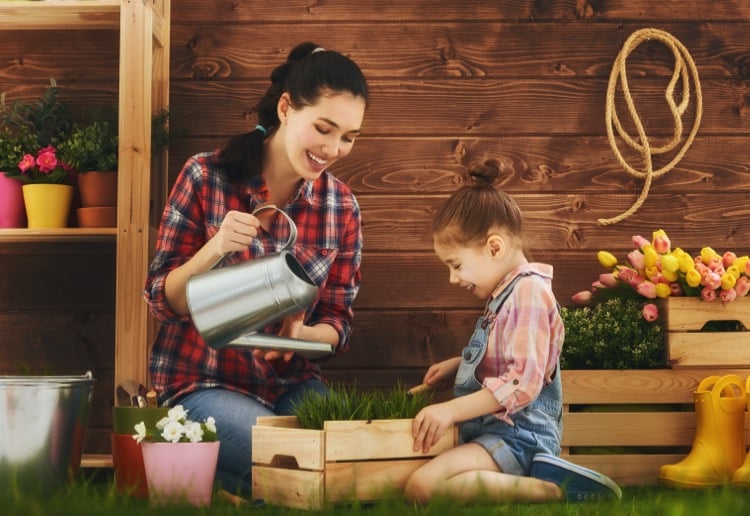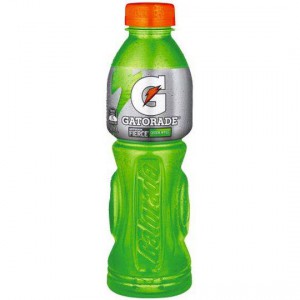A parent is a lifetime guide for his children and there is so much to teach them while they are young.
As a mother of two, I want my kids to strive in school, but also to have time to pursue their passions; I want them to be open-minded, but responsible adults.
I try to plant the seeds of good habits, hoping they will grow strong.
While children will discover at school how the ecosystems work, you can start early to develop an ecological sense in them. And for those of you who wonder how to do that, I have some ideas and suggestions to share:
Embrace the outdoors
Nowadays, children have a lot of entertainment indoors, playing with numerous games and gadgets, so you have to teach them to love nature. Try to include in your schedule everyday outdoor time, ranging from daily walks in the park to weekend trips to the mountains or the seaside.
On a regular basis, have a riverside picnic, play ball, ride bikes, but also encourage them to explore with age-appropriate activities. Collect stones, cones and leaves and make them aware of the movement of the clouds and the wind or the flow of water. You can use these to explain to them the cycles of nature.
Engage in practical activities
There is no better lesson about the wonders of nature than watching a seed sprout or a scion grow. Their joy and surprise at the changing and growing of plants will warm your heart.
You do not need a garden to experiment with growing flowers and vegetables, a few pots are enough to show your kids how it works. This is a good opportunity to teach them about the sources of food and how to choose what they eat.
They will surely understand easier the principles of a healthy diet. You can also arrange visits to the botanical garden, and a local market to approach these lessons. What is more, you can take part in planting sessions every spring our autumn in a park or a local farm.
Spend time with animals
Caring for a pet is an important step in the development of every child. A mouse, a guinea pig or a bird will have a lower impact in your home than a dog or a cat and even feeding the fish can help your kids become more responsible and caring.
However, if a pet does not suit your current lifestyle, make sure your kids will meet animals somewhere else. You can volunteer together at a shelter or spend some time at a nearby farm, where children can feed animals and see how they are groomed.
Everyday indoor lessons
No matter how much you talk to your kids, what they see you do is more important. Visual information is essential, so try to include natural elements in your home and make it as earth-friendly as possible.
Also, instead of telling how to protect the environment, show them. Turn the lights off when you leave a room, do not let the water run while you brush your teeth. Exercise or jog together in the morning and reduce the amount of your screen time before you do that to your kids. Avoid heavy shopping during sales and do not waste food. If they see you act earth-conscious, they will certainly adopt some of your behavior without you even telling them how to act.
Reduce, reuse, recycle
If you want to teach sustainability, you have to follow these three principles.
In order to reduce consumption, shop together for household multipurpose items and debate the urgency of purchasing desired objects by each family member. Try to reuse old items by giving them another purpose, like filling pillows with used fabrics or planting flowers in plastic bottles.
The last step is to recycle the items that can no longer be used. Pay attention to details; not only plastic and paper can be recycled, but also items as empty printer cartridges. Assign every family member with a recycling task. A kid person can sort the plastic, mom can gather discarded clothes and dad can take care of transport.
Among the many things I want to pass on to my kids is taking good care of mother nature, appreciating its beauty and acknowledging its importance. I try to show them that the small decisions we make every day can have a great impact on the environment and they know by now that not only our home is our house, but the planet itself.
Have you shown your kids how to recycle? Share with us below.
We may get commissions for purchases made using links in this post. Learn more.




















-

-
-
-
hopefullyheidi said
- 16 Sep 2017
Reply
-

-
-
-
mom160421 said
- 24 Jun 2017
Reply
-

-
-
-
june11 said
- 17 Jun 2017
Reply
-

-
-
-
BellaB said
- 12 Jun 2017
Reply
-

-
-
-
mom206279 said
- 07 Jun 2017
Reply
-

-
-
-
mom90758 said
- 01 Jun 2017
Reply
-

-
-
-
celebrity said
- 30 May 2017
Reply
-

-
-
-
mom176887 said
- 29 May 2017
Reply
-

-
-
-
mom93821 said
- 25 May 2017
-

-
-
-
Ellen said
- 22 May 2017

Reply
Post a comment9:21 pm
8:56 pm
11:56 pm
11:36 am
7:03 am
2:34 pm
10:39 am
5:19 pm
5:51 am
-

-
-
-
mom93821 replied
- 28 May 2017 , 6:33 am
Reply3:04 am